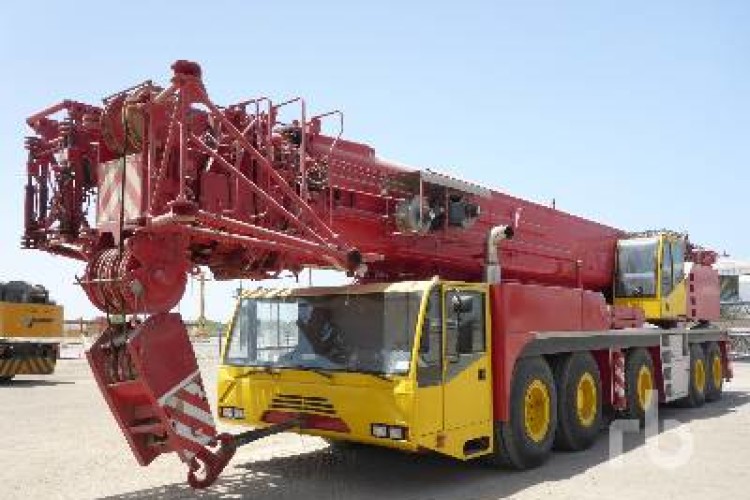From May 2018 specialised heavy vehicles based on an HGV chassis will no longer be exempt from annual MoT roadworthiness inspections, but exemptions will remain in place for those vehicles on special chassis, regardless of their age.
While some road-going mobile cranes in the UK are based on a commercial chassis – truck crane types – most nowadays are of the all terrain type with purpose-built chassis and so will continued to be exempt from the government's vehicle inspection laws.
The DfT was persuaded to allow the exemption of all terrain cranes to continue because some of the larger ones may not fit into authorised testing facilities (ATFs) and would need special arrangements to cope with their weight and height.
However, it said that it was “pleased to note” that the Construction Plant-hire Association is developing a voluntary industry testing scheme for non-HGV mobile cranes. “We will help to facilitate this wherever possible,” it said.
Roadworthiness tests for mobile cranes became a political issue after a crash in August 2011. The brakes failed on a 500-tonne and the driver, Lindsay Easton, was killed. It was subsequently found that several of the wheel brakes were inoperable, worn and contaminated. The engine retarding systems were also broken, providing only limited braking force. Baldwins Crane Hire was eventually fined £700,000 for manslaughter. Questions were asked in Parliament about why such vehicles did not require the same checks as a Fiat 500.
Nearly three years have passed since the government began consulting on widening the scope of MoT tests to such specialist vehicles. Political events, elections and a referendum have stalled progress, but now the verdict is out.

Heavy vehicles exempted under paragraph 44.1.(e) of the Goods Vehicles (Plating and Testing) Regulations 1988 – i.e. vehicles operating under STGO or vehicle special orders under Section 44 of the Road Traffic Act 1988 – will remain exempt from annual roadworthiness checks.
The exemption will be removed from truck-mounted access platforms, break-down vehicles, engineering plant and road construction vehicles based on an HGV chassis.
In total, the DfT estimates there to be around 29,500 vehicles that will be brought into testing.
The consultation document also asked specific questions about whether volumetric concrete mixers (VCMs) should be permitted to exceed the standard 32-tonne weight limit for vehicles of their design. Consultation responses were split between those who stated restricting VCM weights would increase their operating costs disproportionately, and others who thought they should be treated like all other HGVs. The DfT is still chewing on this one. For the time being, VCMs will be required to undergo roadworthiness testing, but will not be required to be plated.
The government's response to the consultation concludes: “Although we have not removed all of the exemptions from testing that were considered at consultation, the Department wishes to remind vehicle owners that they have a legal responsibility to ensure that their vehicles are roadworthy at all times. In addition, the Department encourages voluntary testing of vehicles that will remain exempt from statutory testing, and supports the ongoing initiatives of certain industry bodies to develop such schemes.”
The changes will be implemented through amendments to the Goods Vehicles (Plating and Testing) Regulations 1988. The legal changes will take effect from 20th May 2018.
Got a story? Email news@theconstructionindex.co.uk
.png)


